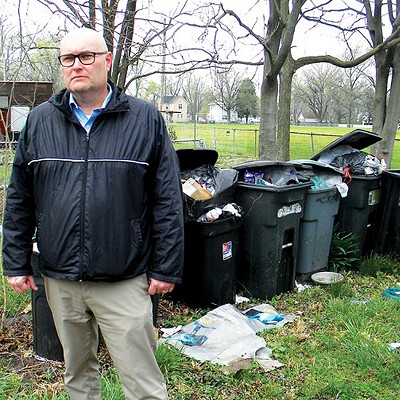Life in Iraq
Our occupation is making life intolerable

[
{
"name": "Air - MedRect Combo - Inline Content 1",
"component": "11490391",
"insertPoint": "3",
"requiredCountToDisplay": "1",
"parentWrapperClass": "fdn-ads-inline-content-block"
},{
"name": "Air - MedRect Combo - Inline Content 2",
"component": "11490392",
"insertPoint": "7",
"requiredCountToDisplay": "5",
"parentWrapperClass": "fdn-ads-inline-content-block"
},{
"name": "Air - MedRect Combo - Inline Content 3",
"component": "11490393",
"insertPoint": "12",
"requiredCountToDisplay": "9",
"parentWrapperClass": "fdn-ads-inline-content-block"
}
]
Untitled Document
According to the “Dick and George Show,”
broadcast daily from the White House, things are really looking up in Iraq.
Hmmm. They might want to ask the Iraqi people.
Ordinary folks report that life there is miserable. Violence erupts
constantly and unpredictably, fear is everyone’s companion, bombings
and bodies are everywhere, it’s dangerous to leave your house, jobs
are scarce, basic services are practically nonexistent, and distrust,
frustration, and anger rule.
It’s so bad that some 2 million Iraqis have
fled their country, including 40 percent of professionals. For example,
one-third of doctors have fled — no surprise, because more than 2,000
doctors have been murdered. Three thousand people a day are leaving Iraq
— so many that Saudi Arabia, supposedly our ally in this mess, is
building a 560-mile fence on its border to try to keep its
“neighbors” out.
Another 1.6 million Iraqis are displaced within their
own country, forced from their homes by various factions in this civil war.
Many of these are children. Only 30 percent of Iraqi children attended
school last year. Before the war, nearly every child was in school.
Worse, the nation’s kids are in shock from
routinely witnessing violence, including gruesome killings. They see the
dead bodies of close family members and friends. A recent study of 2,500
gradeschool children in Baghdad found 70 percent of them showing symptoms
of posttraumatic-stress disorder.
And although Bush brags that his war has liberated
women, there has been an explosion of violence against them since the war
began, including abductions, rapes, torture, public beheadings, and
hangings. One of the female members of the Parliament says bluntly,
“This is the worst time ever in Iraqi women’s lives.”
Did I mention that 71 percent of Iraqis want George, Dick, and our troops out of their country?
Jim Hightower is a national radio commentator, columnist, and author.
Did I mention that 71 percent of Iraqis want George, Dick, and our troops out of their country?
Jim Hightower is a national radio commentator, columnist, and author.
Illinois Times has provided readers with independent journalism for almost 50 years, from news and politics to arts and culture.
Your support will help cover the costs of editorial content published each week. Without local news organizations, we would be less informed about the issues that affect our community..
Got something to say?
Send a letter to the editor and we'll publish your feedback in print!














